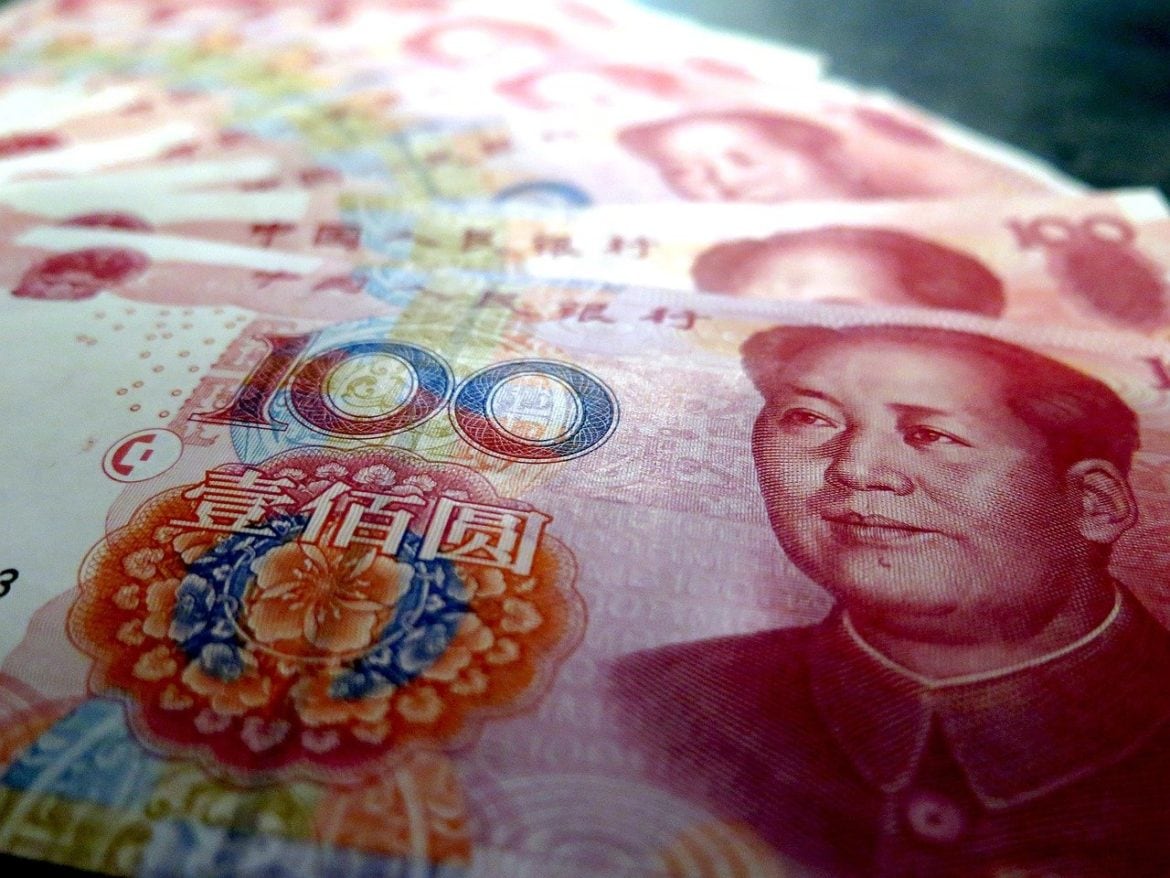
Money market rates in China have risen dramatically over the past few days, raising fears of a liquidity squeeze. Could the People’s Bank of China’s tightening policy negatively impact global markets at a time of rising equity trading instability?
China’s benchmark overnight repo rates are priced near multi-year highs and near the top end of the guidance that the PBOC (People’s Bank of China) sets. The rates have risen as China took measures to pull out liquidity from the markets.
China’s liquidity freeze
Between Monday and Thursday, the PBOC drained 328 billion yuan ($51 billion) from the markets. This includes the withdrawal of 150 billion yuan on Thursday which is the highest single-day liquidity removal that the Chinese central bank has done since October.
On Friday, the PBOC injected 100 billion yuan into the financial system. However, since 250 billion yuan of liquidity was set to expire today, the PBOC withdrew another 150 billion yuan from the system. This week, altogether it has drained 568 billion yuan from the country’s financial system.
Why is PBOC draining liquidity from the financial markets?
Generally, the Chinese central bank has used the tools at its disposal to control asset bubbles. In the past , it has drained liquidity from the markets when it felt that the housing market was getting into a bubble.
In 2017, Chinese President Xi Jinping famously said that houses are for living in and not for speculating on. Over the last year, China, like all other economies, has pumped massive liquidity into its financial markets. As has been the case globally, a lot of this money found its way into financial and real estate assets, driving prices higher.
Property prices in China are rising again and that seems to be making the authorities apprehensive. Incidentally, China’s Shanghai Composite Index, that is still below its 2007 highs, has also gained 27% over the past year. Also, in 2015 the Chinese central bank had jumped in when it sensed a bubble building in stock markets.
US stock markets
Looking at the US stock markets, the Nasdaq 100 Index rose almost 45% last year despite the COVID-19 pandemic taking a toll on the country’s economy. While the stock market’s fundamentals might not have justified the rally, the massive liquidity infused by the US Federal Reserve, which was an even greater amount than it had pumped in during the global financial crisis, helped fuel a rally in asset prices.
The wave of liquidity in US markets also found its way into emerging market stocks and currencies, driving them higher. Meanwhile, while their counterparts globally don’t seem to be in any mood to put the brakes on easing, the PBOC has bitten the bullet.
What would it mean for the global markets?
Central banks globally will likely stick to their accommodative monetary stance, irrespective of what’s happening in China. Last year, the Fed even changed its approach to average inflation targeting, removing any fears that it would jump to raise rates as soon as the inflation crosses its 2% threshold. Looking at the Fed’s projections, there looks to be little possibility of a rate hike until at least 2023.
That said, given China’s rising stature in global markets, where it is now the second-largest economy and fast catching up with the US, the country’s monetary tightening is bound to create ripples in other markets . Commenting on China’s tightening, a trader at a foreign bank said that “Unlike previous rounds of cash crunch, it’s really hard to tell when the conditions will start to loosen up this time.”
Are we in an asset bubble?
China’s clampdown on liquidity has again brought to the forefront worries about asset bubbles elsewhere. Last year, the IMF (International Monetary Fund) pointed to an asset bubble. The IMF said, “This disconnect between markets and the real economy raises the risk of another correction in risk asset prices should investor risk appetite fade, posing a threat to the recovery.”
Meanwhile, the sudden spike in some shares like AMC Theatres and GameStop with at best questionable fundamentals, reflects how there has been too much liquidity in the system. But central banks have so far let the liquidity-driven rallies continue – as long as it doesn’t impact financial stability. It may now be an open question as to how much longer they will take such an accomodative attitude.

Question & Answers (0)